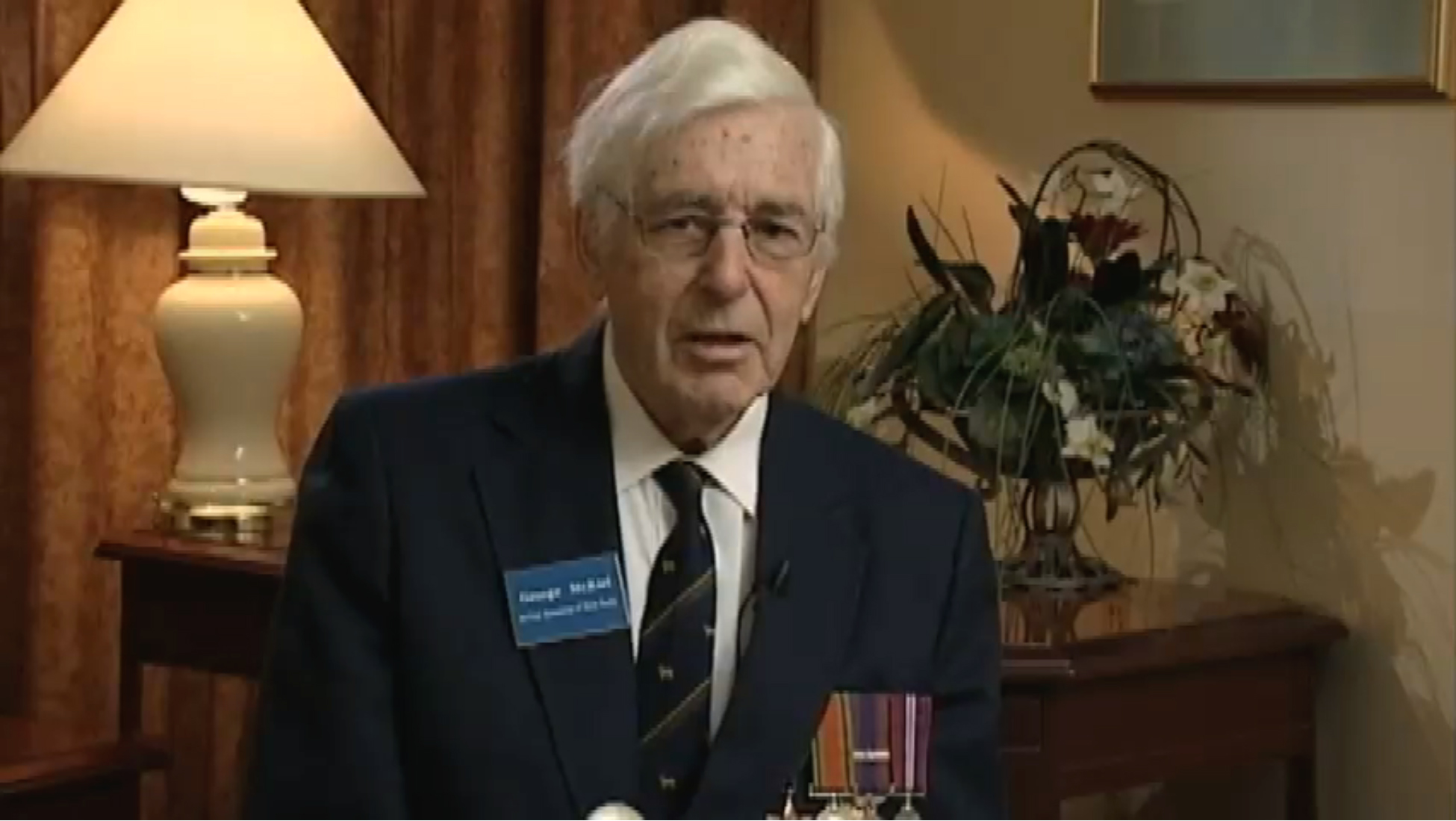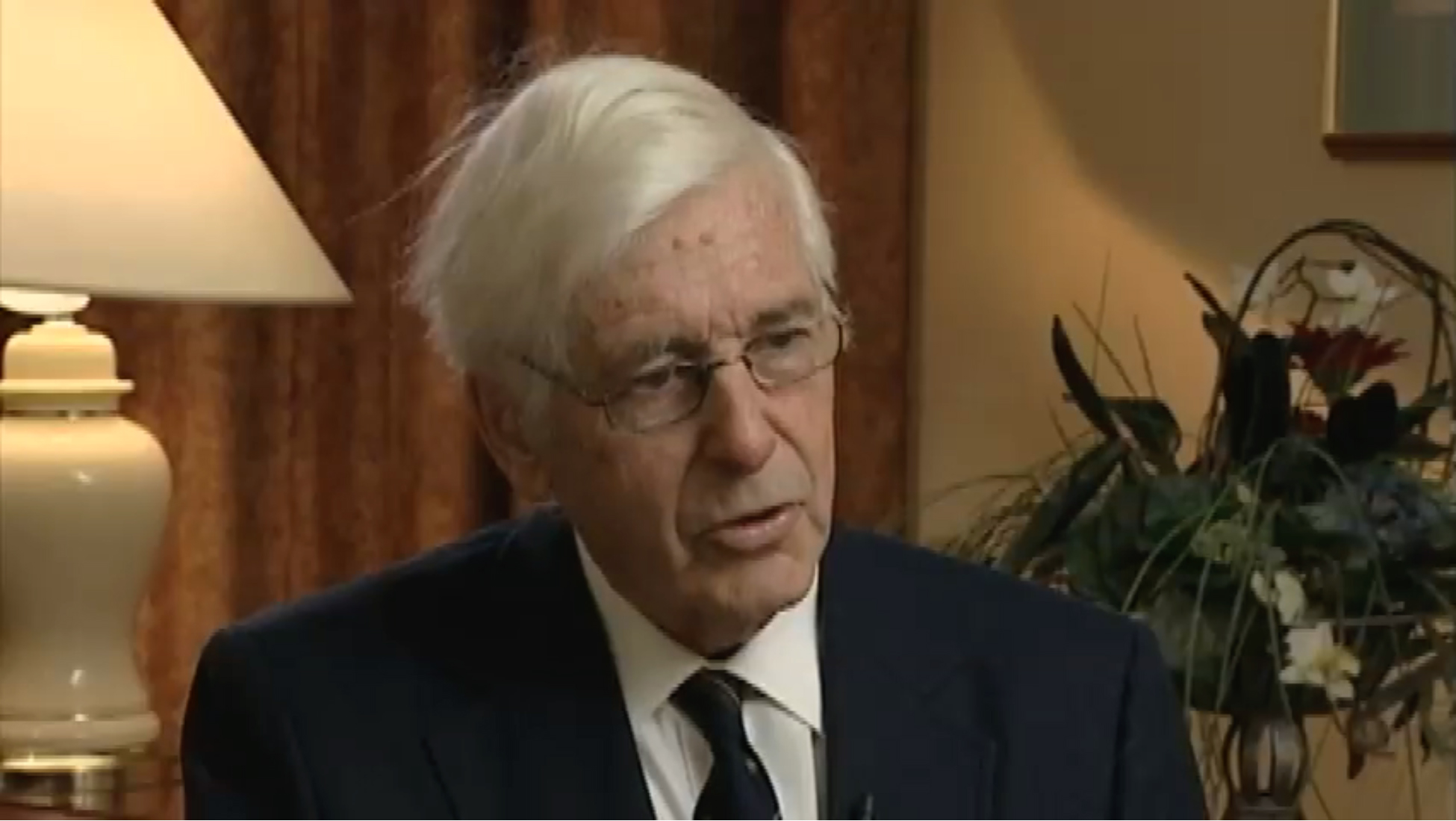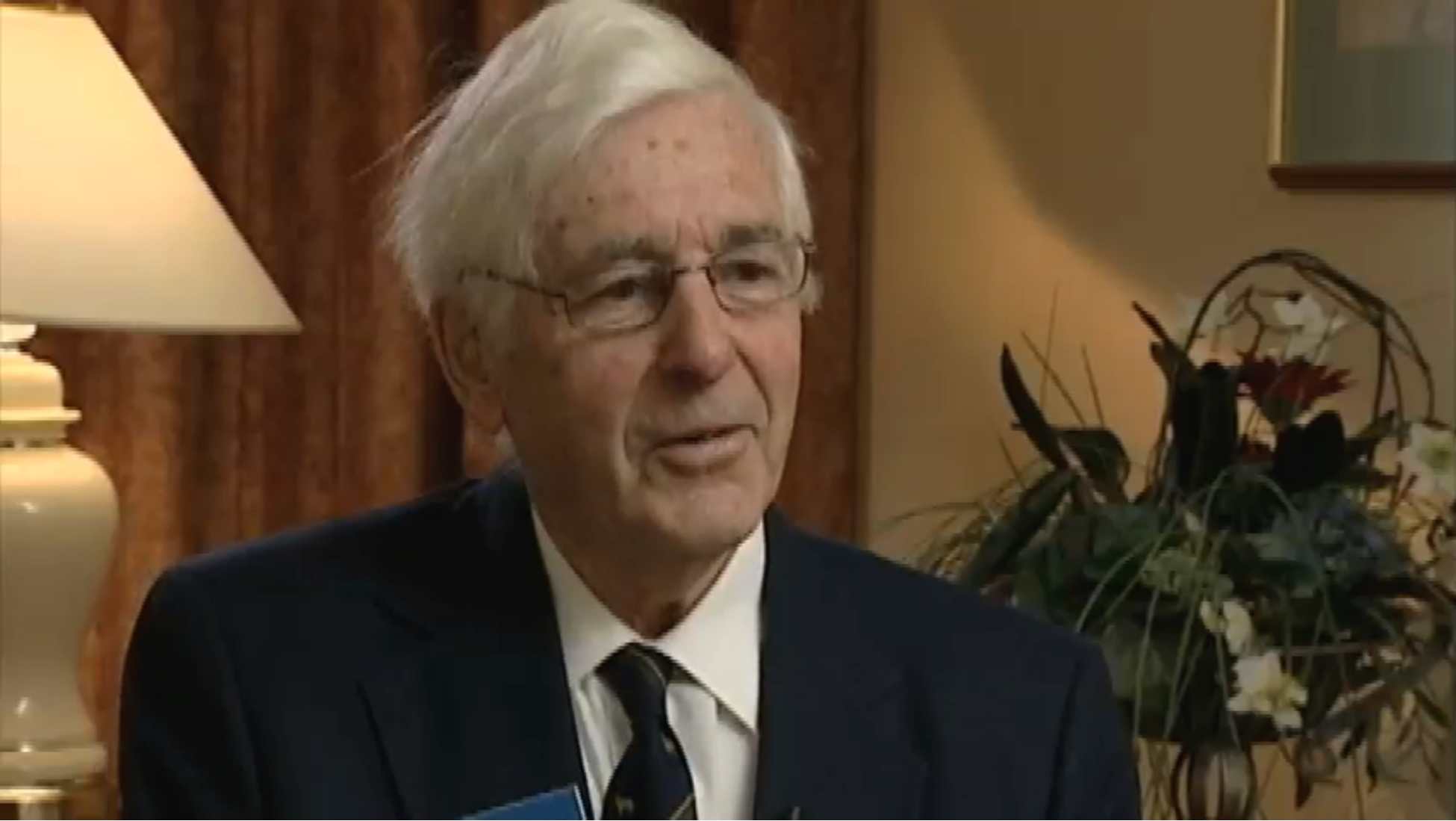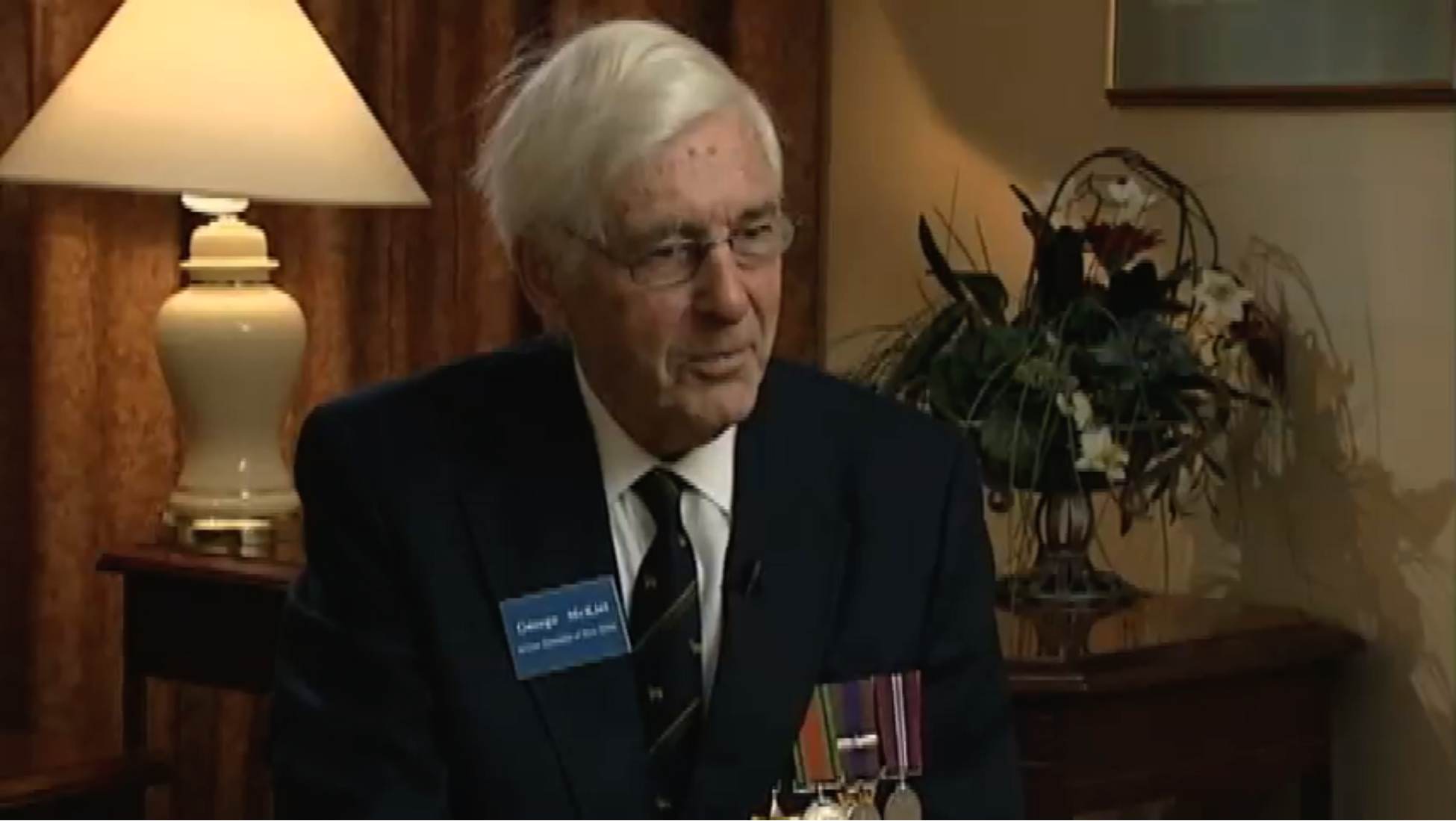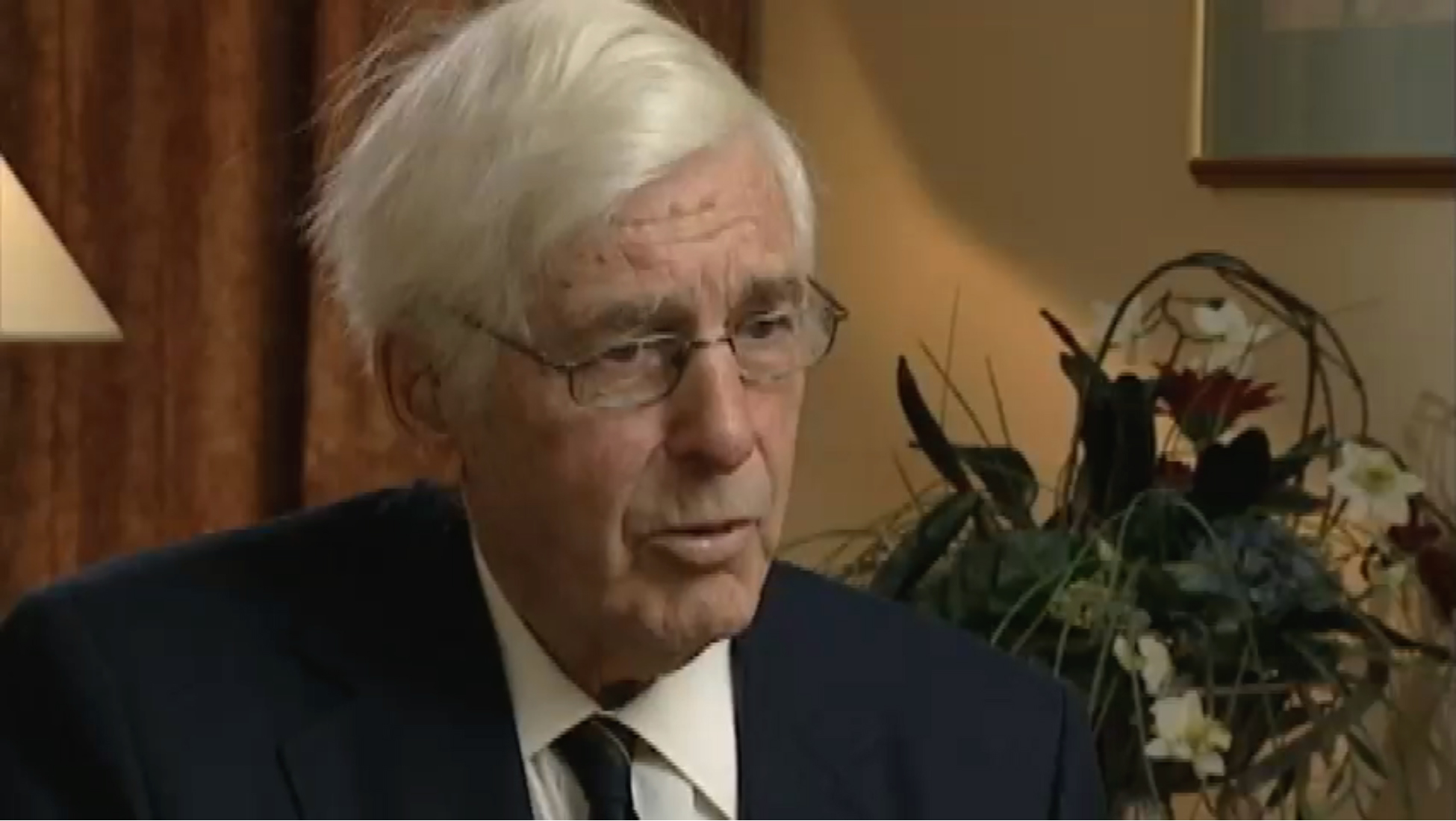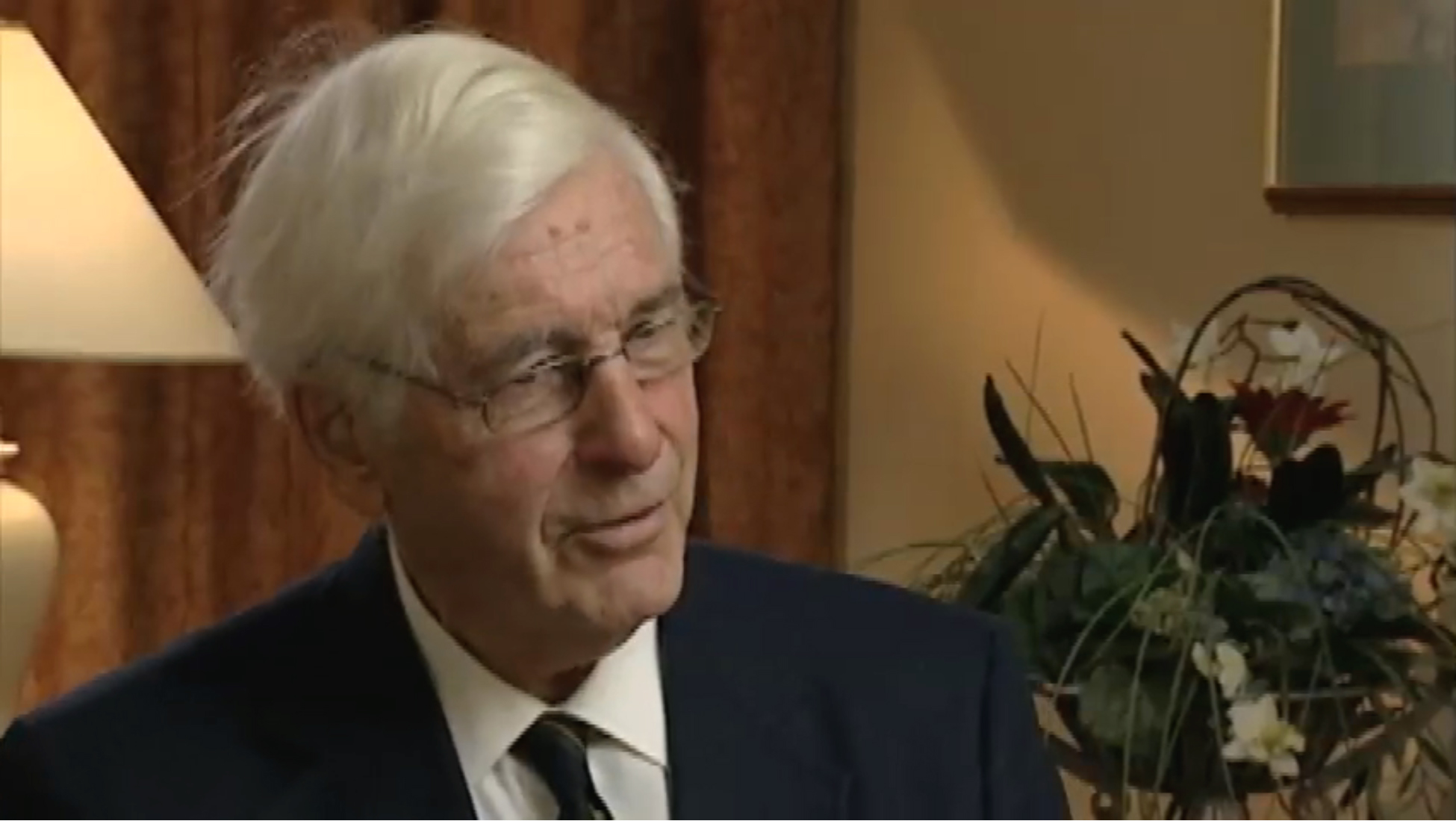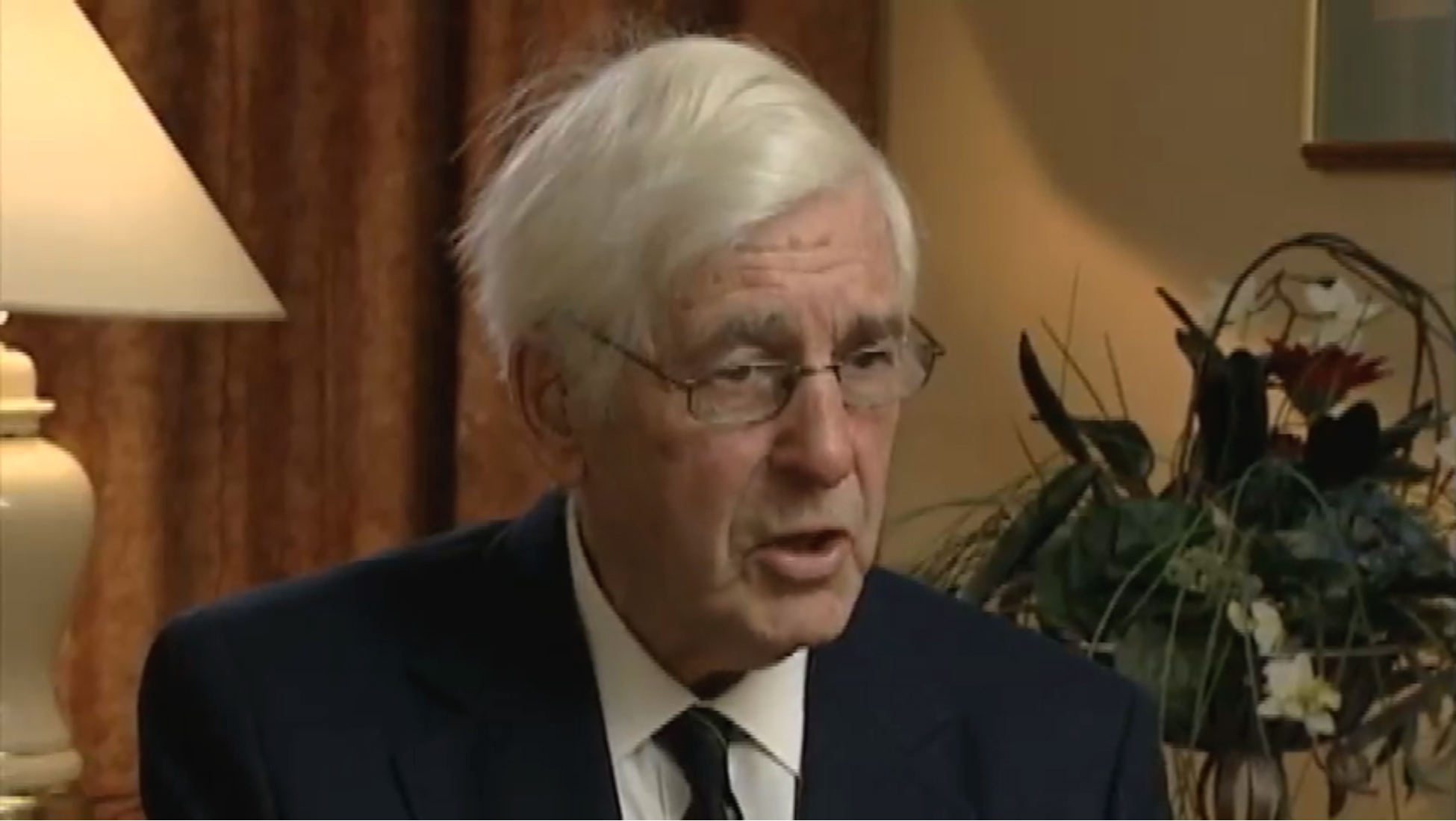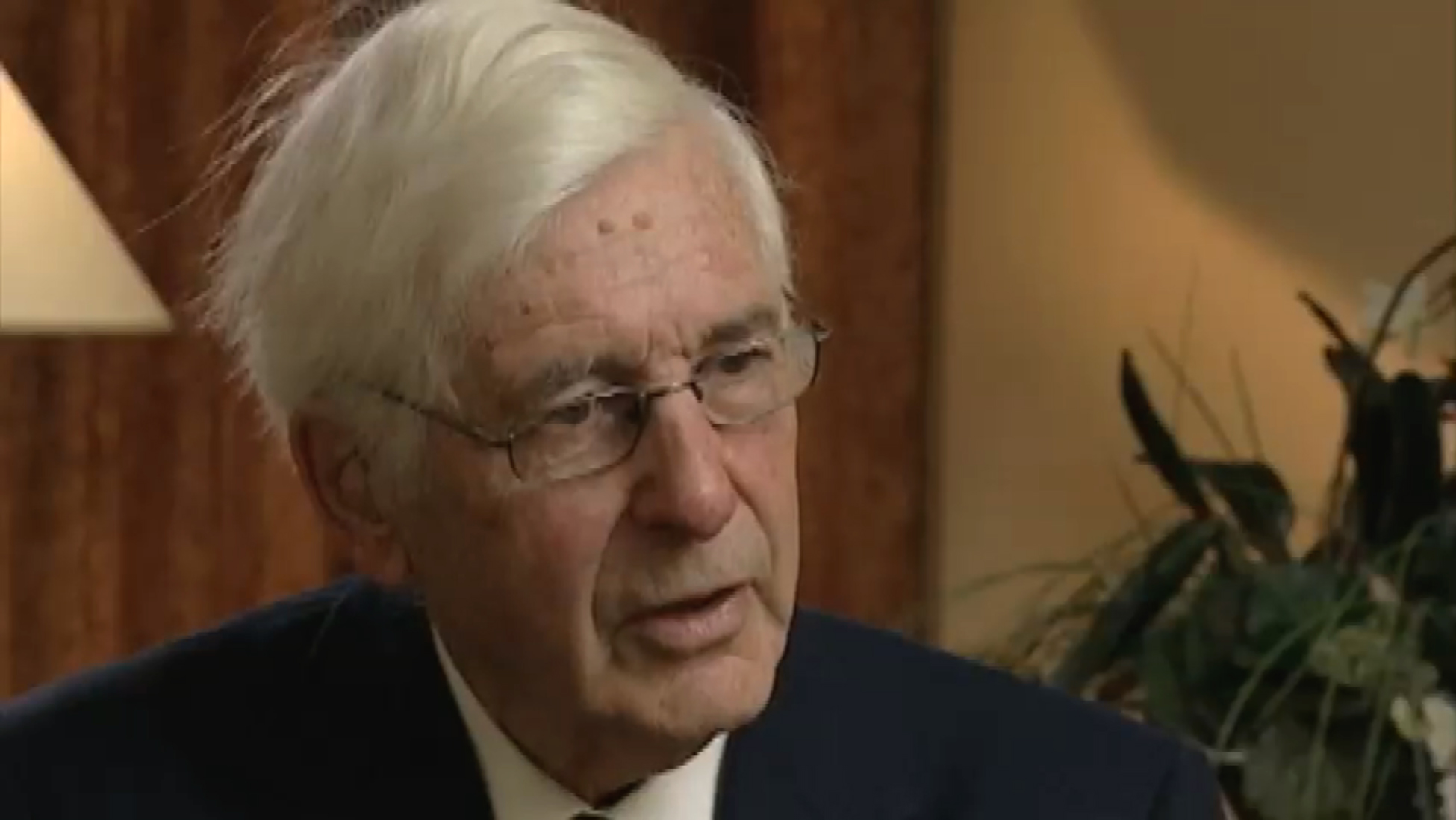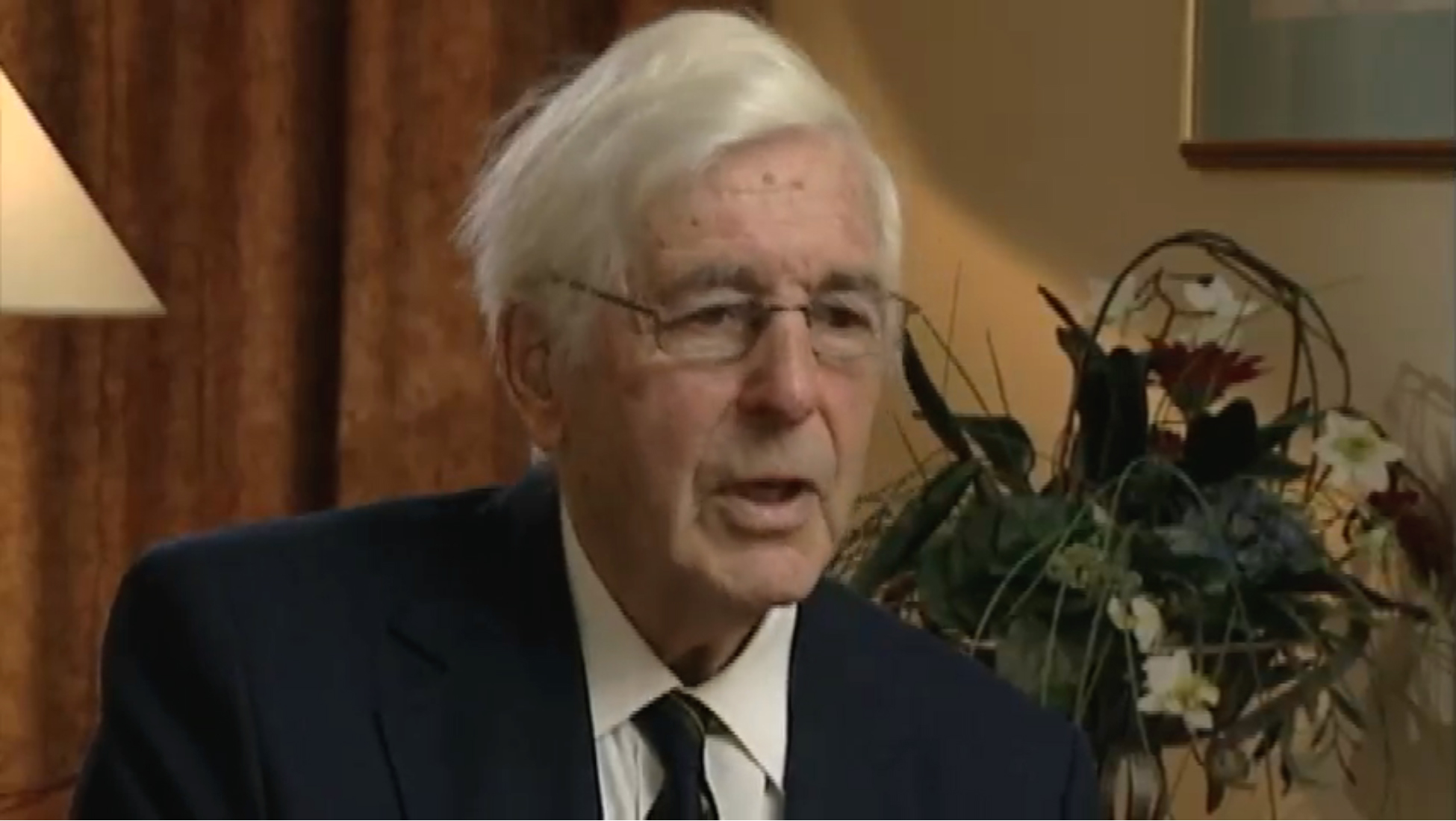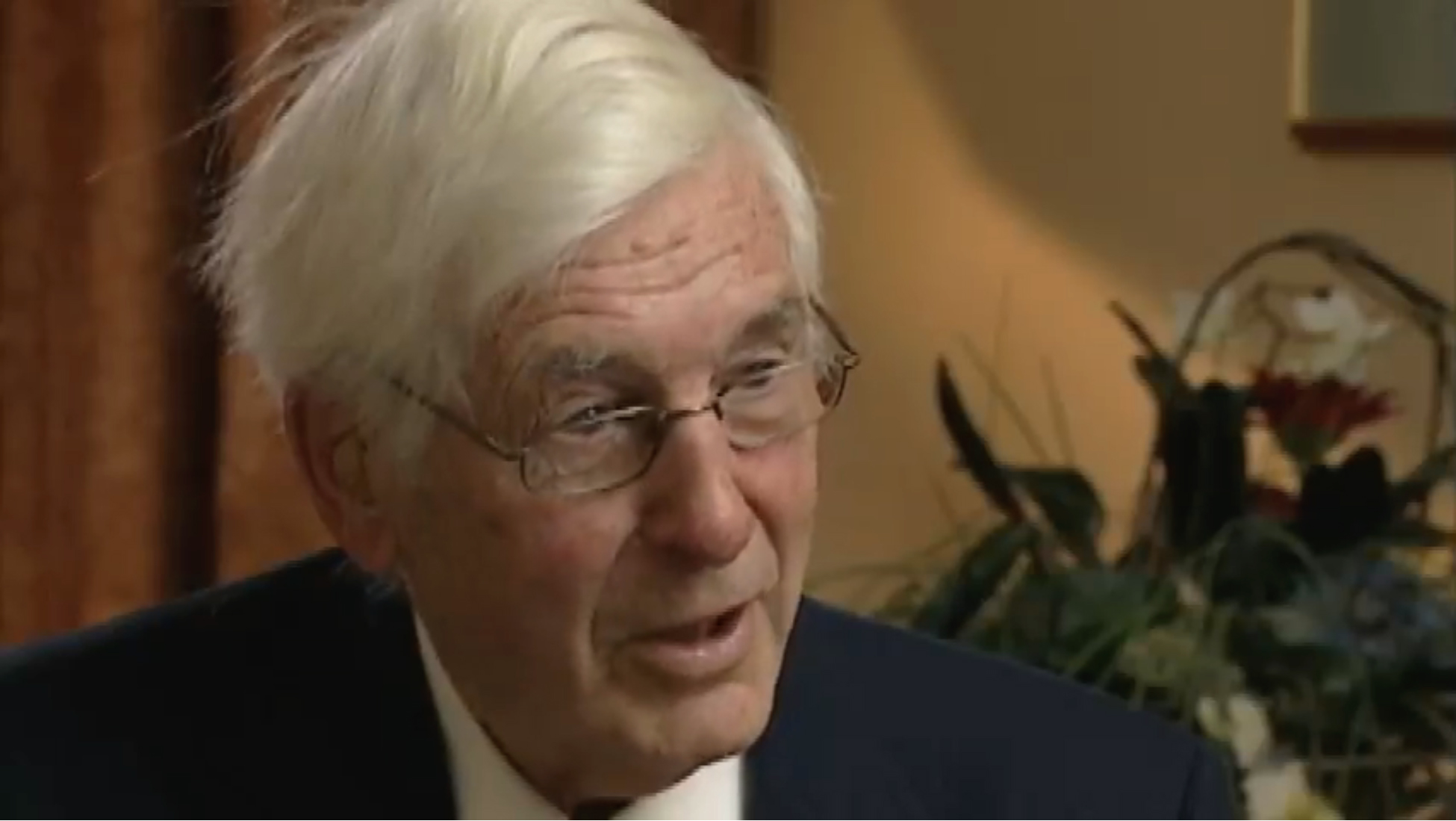One of the things that happened was that, that day there was a
horrendous snow storm. It seemed to be almost as bad as the one
we've just had. And that looked bad because most of the escapees
were going to travel hard-assed, as we called it. That is to say,
they were going to walk and try and eventually get to France and
contact the underground or some other way of getting back to
Britain. Others had minute details of train schedules, and they
had their forged papers to prove that they were foreign workers
who were being moved to another factory, or whatever. And so,
eventually, the tunnel didn't seem to be functioning too well,
because there was an air-raid on Berlin that night and the power
was cut off, so all that lighting system we had in the tunnel
was no use. Instead, they had to use fat lamps. They had to
have some illumination, and that fouled the air so much. Some
of them who were travelling cross-country realized that it was
going to be deathly cold, and so they wrapped blankets, an extra
blanket around themselves and got stuck in the tunnel and it took
in some cases, a couple of hours to try and extricate somebody.
And, so, at the end of it, about 4:30 in the morning, suddenly we
heard a, a rifle shot and we realized that the alarm had gone up.
And what had happened was the 78th prisoner was up at the face
of the tunnel, ready to climb out, when a German guard who was
supposed to be walking the fence, apparently must have been a shy
man because instead of taking a pee along beside the fence, he
walked over towards the wood, and suddenly a head popped up
between his legs. So, in consternation, he fired his rifle, and
that was the end. And, so, immediately, the Germans rushed into
the camp. The 78th person, who was still not out of the tunnel,
realized that the alarm had gone up, and so he raced back
through the tunnel as quickly as he could, trying to pull some of
the bed boards down and get a, a fall-in, so the Germans wouldn't
be able to crawl through. He wasn't successful, but he
eventually came back into the Hut 104 to discover that all of
the would-be escapees who were still there, were busy stuffing
themselves with their carefully rationed foods, their rations for
escaping and were also destroying their documents. And then
the Germans came in quite quickly, and there was a very tense
moment when it looked as though they would start shooting rather
erratically. But then they moved in with machine guns, and we
were all taken out onto the parade grounds and were held there
under machine gun surveillance for, I think, it must have been
six to eight hours in the bitter cold. And they tried to find out
how many had got out, and they counted and they recounted
and they recounted and, eventually, they decided that it was
pretty close to 80. In fact, it was 76 that actually got out and
of the 76, three actually got back to Britain within a very short
period of time. Two of them managed to get a train direct to
Stettin and then got aboard a Swedish vessel, and they were
in London within a few days. So, that was a terrific boost to us.
The sad part of it was that the Germans, the Luftwaffe, were
replaced by the SS as our guards and that meant that things were
really very tight. They took away all the privileges of the camp
itself and several weeks later, the senior British officer was
told that he had to have a meeting with the commandant.
The commandant said, "I have some bad news. A number of
your colleagues have tried to re-escape and were shot."
And the senior officer said, "Were shot? How many were actually
killed?" And they said, "They were all killed." And, so, they
realized that it was not a shooting, it was an execution.
And this was reinforced about another two weeks later,
when the Germans shipped in the ashes of the fifty officers
which the Gestapo had executed.



